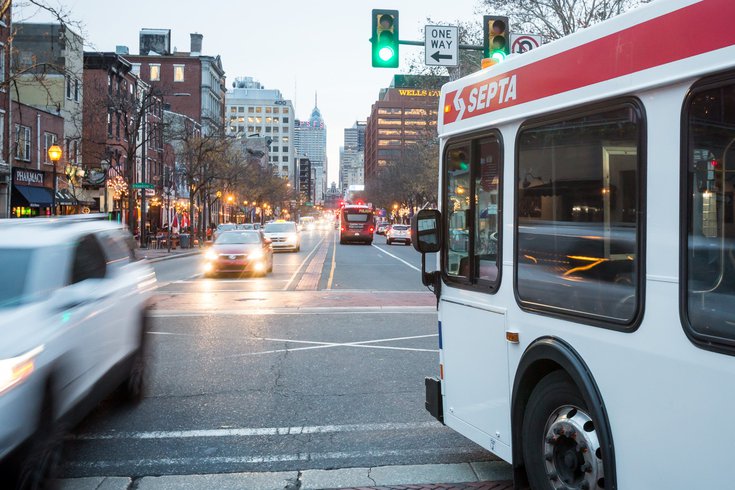
July 08, 2021
 Thom Carroll/for PhillyVoice
Thom Carroll/for PhillyVoice
Officials with the city of Philadelphia and SEPTA are challenging developers to create augmented reality technology that make public transportation more accessible for people with disabilities.
Emily Yates has seen examples of augmented reality technology making public transportation more accessible in cities like New York and Barcelona. Now, she’s calling on developers to bring Philadelphia up to speed.
Until Aug. 2, the city is accepting submissions for the "SEPTA for All: Augmenting Transit with Augmented Reality" challenge. Augmented reality, or AR, takes digital information and overlays it in real time on users’ physical environment, Krish Kupathil, the founder and CEO of Mobiliya, said in an article for Mass Transit Magazine.
The goal of the challenge, Yates said, is to produce an array of technology that, when incorporated into daily life, can make navigating a system of buses, trains and trolleys easier for people with disabilities. That could mean drawing inspiration from the Metropolitan Transportation Authority’s app, which uses QR codes to provide visually impaired people with audible instructions for walking the final stretches to bus stops, or coming up with something entirely original.
"I think it's really amazing how people are creative, and that's part of the reason we left the question for the challenge very broad," said Yates, the director of SmartCityPHL. "We wanted to provide space for people being really innovative and thinking of things that we haven't seen already. … I'm really excited to see what we actually get people to come up with because I think there's so many opportunities."
To help inform the AR challenge, city officials and SEPTA have launched a survey that asks people with disabilities about their experience using public transportation. They’ve also spoken with disabled riders who will share their stories of navigating Philadelphia at a July 19 challenge kickoff event.
"Their insights have been really, really important," said Joanna Hecht, SmartCityPHL’s pitch and pilot fellow.
The survey is available online through July 17, and the results will be shared two days later at the kickoff event. Click here to complete the survey.
From the pool of applicants, judges will select 12 teams to publicly present their ideas Aug. 20. When the field is narrowed to finalists, their prototypes will be displayed in late October with more than $35,000 in prizes on the line.
Some of the winning technologies could be incorporated alongside SEPTA’s "Rail Transit Wayfinding Master Plan," which could result in a major overhaul of the transit agency.
"We're really taking a look at everything from colors that we're using to type faces to maps and symbols, you know, to make sure that our system can be as understandable as possible," said Lex Powers, SEPTA’s strategic planning manager. "For people with disabilities, for people who don't speak English. For people who are recent immigrants."
The challenge to make SEPTA more accessible comes at a point when its ridership continues to lag behind traffic rates from before the COVID-19 pandemic. Powers said he and his colleagues approach their work with the "central goal" of getting people familiar and comfortable with using public transportation again.
"We of course believe that the best way to do that is making sure that every type of person can use SEPTA easily," he said.